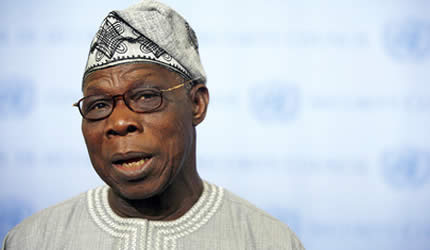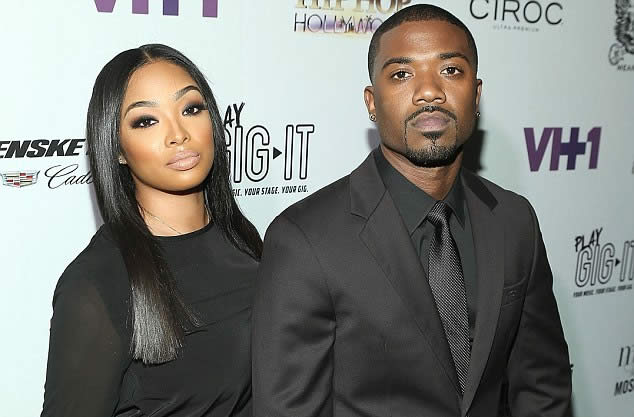Obasanjo deals Jonathan heavy blow

LAGOS/MAIDUGURI. — Former Nigerian president Olusegun Obasanjo has quit the ruling People’s Democratic Party that he helped found, in a blow to president Goodluck Jonathan six weeks before an election. Obasanjo, a heavyweight in regional politics and godfather of many a Nigerian politician, had long expressed dismay over Jonathan’s handling of the Boko Haram Islamist insurgency and corruption scandals in the oil sector.
“Henceforth, I will only be a Nigerian. I am ready to work with anybody regardless of his or her political affiliation,” he said in a statement printed in the local press yesterday.
He tore up his party membership card at his home in Abeokuta, southwest Nigeria, late on Monday, local media reported.
“Without Nigeria, there will be no PDP anymore . . . What some of us should be concerned about is how to make Nigeria stronger,” Obasanjo (77), a former mentor of Jonathan, said.
PDP spokesman Olisa Metuh said the party was “deeply saddened that Chief Obasanjo, whom the PDP offered the platform to rule our nation for eight years, could decide to abandon this party at this critical point in time”.
Obasanjo’s decision to dump the party that helped smooth Nigeria’s transition from decades of military dictatorship to democracy when he took power as a civilian president in 1999 was no great surprise.
In an interview with the Financial Times last week, Obasanjo endorsed Jonathan’s rival Muhammadu Buhari of the opposition All Progressives Congress (APC), a former military ruler in the 1980s seen as tough on security and corruption.
In 2013, Obasanjo wrote an open letter to Jonathan urging him not to seek a second elected term, likening his tenure to that of General Sani Abacha, whose five years of military rule in the 1990s were marred by human rights abuses and the looting of funds from Africa’s biggest oil producer. He is also critical of Jonathan in his autobiography launched this month, which has been banned in Nigeria. The military on its website accused Obasanjo of “indulging in politicisation of serious national security or military affairs”.
Ever since the electoral commission delayed the election by six weeks — it was supposed to happen on Saturday — under pressure from the military, doubts have gathered over the role of the security services in the poll preparations.
The military was accused of interference when the electoral commission revealed that it had urged the delay to give more time to quell the six-year-old Boko Haram insurgency. Huge crowds welcome Nigeria opposition leader.
Meanwhile, a massive crowd of cheering supporters mobbed Nigerian opposition leader Buhari in the embattled northeast city of Maiduguri on Monday, as the candidate vowed tough action against Boko Haram if elected.
People flooded the streets surrounding the airport in the Borno state capital before Buhari’s arrival, defying security fears in a city repeatedly attacked by the Islamist militants. Boko Haram was founded in Maiduguri in 2002 but since the movement turned violent in 2009, the once bustling trading hub has been devastated.
Markets have been bombed regularly and scores of civilians shot dead in their homes. All Progressives Congress party candidate Buhari, a former military ruler, pledged to reverse the perceived failures of president Jonathan in tackling the rebel uprising.
“If we get the people’s mandate . . . Nigerians will begin to see a government that really care(s),” he told the crowd after visiting the area’s top Islamic cleric, the Shehu of Borno.
“It is not going to be easy, tackling the insurgency, but we are determined to face it squarely,” he said.
Buhari’s drive from the airport to the Shehu’s palace — which normally takes 10 minutes — lasted more than two hours as people thronged the streets seeking a glimpse of the presidential hopeful.
Jonathan, who visited Maiduguri last month, has come under intense criticism in the region for his perceived lethargy in dealing with the Boko Haram insurgency.
Three years of relentless attacks in Borno prompted a state of emergency and the promise of decisive military action. But the offensive appeared to achieve nothing, and reports suggested that troops sent to Borno often lacked ammunition and basic communication equipment as the insurgents seized large swathes of territory. The military has, however, claimed significant gains in Borno this month following the launch of a joint operation with Nigeria’s neighbours.
Buhari has not articulated a detailed plan to crush the uprising but has repeatedly promised to get troops proper equipment to fight an increasingly well-armed extremist movement. After meeting the Shehu, Buhari attempted to move to the nearby Ramat square to address a campaign rally but again his movements were slowed by a mass of supporters.
An AFP reporter said the trip, which normally takes five minutes, took more than an hour and that the crowd at Ramat was perhaps the largest ever gathering in Maiduguri. The boisterous crowd virtually drowned out the candidate’s speech, the reporter added.
Buhari, like most in Maiduguri, is a northern-born Muslim, giving him a clear political edge in the city over Jonathan, from Nigeria’s mainly Christian south.
But Buhari is also an ethnic Hausa, a group that has a long history of tension with the Kanuri of Borno, the dominant ethnic group in Boko Haram. Experts say his support in the area likely runs deeper than religion and tribe. Many see Buhari, partly because of his military background, as better placed to stamp out the raging insurgency. — Reuters/AFP.








Comments